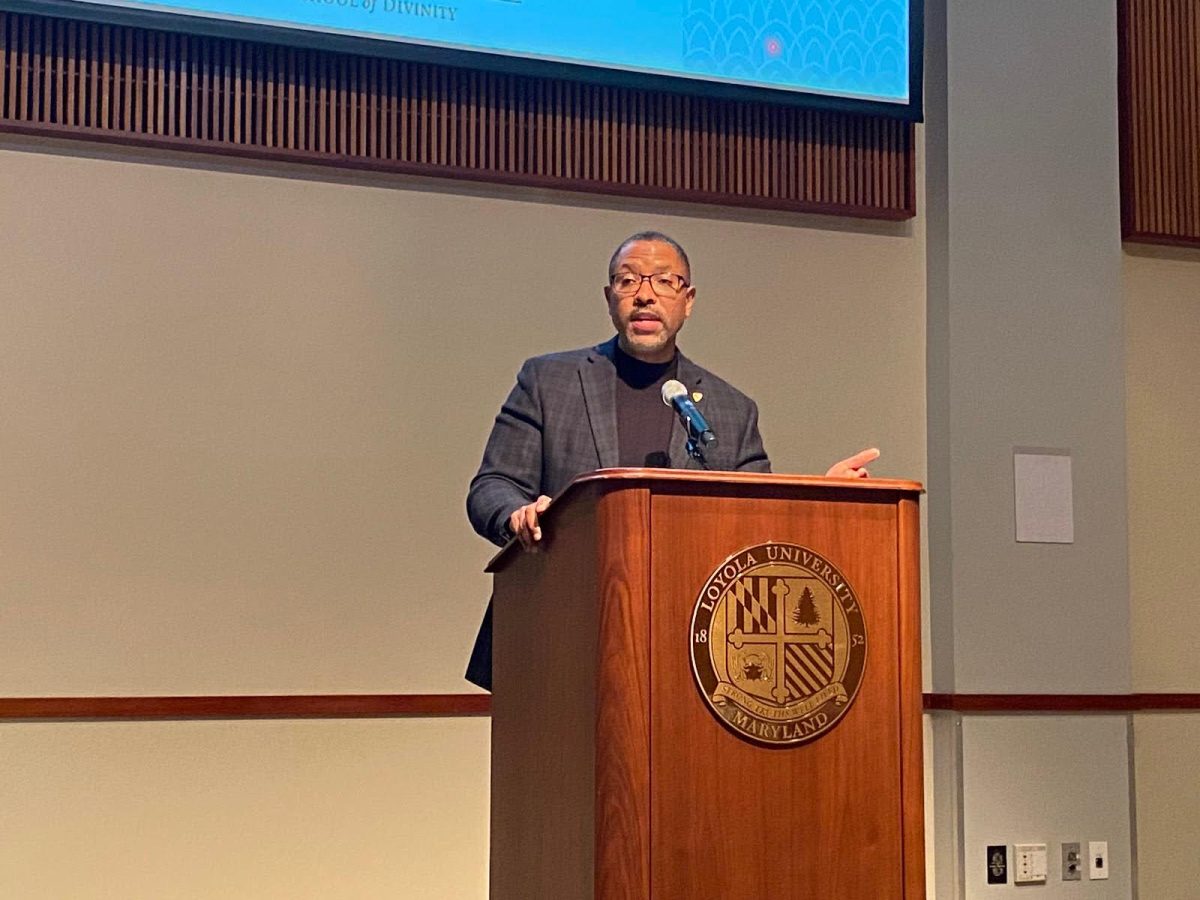Loyola is moving towards an environmentally ethical curriculum, taking Cura Personalis to a global level by caring not just for the person, but the environment. This push towards a more environmentally focused curriculum started with Messina and its theme, all about caring for one’s community. The last Messina lecture of the semester, given by Dr. Corey D. B. Walker, reflected this theme.
“We know that disciplines can’t respond, disciplines host our questions… I’ve been trying to figure out how we develop a way of thinking that can actually host a capacious way of living in the world,” he said.
Dr. Corey D. B. Walker is the Dean of Wake Forest University in North Carolina and a professor of the Humanities. He has taught many students inside and outside of the United States about the importance of “planetary thinking” and the ethics behind our current environmental crisis.
“The planetary crisis provides for us many ways we can change the ways in which we live our lives and really change the organization of human life. And we can begin right in our universities,” he said.
For the past few years, Walker has been making his own moves towards educating the next generation of planetary thinkers, this time at Wake Forest University through a program called The Environmental and Epistemic Justice Summer Institute. This program aimed to challenge the community to think about environmental justice and learn how to address them in their everyday lives. This community-based project was funded by the Mellon Foundation during the summer of 2023. Much of that information was touched on in Walker’s lecture.
“For the first time in human history, we have the ability to end all major life on the planet. This is what the great Sylvia Winters reminds us of, that once we unleash this atomic bomb, we have done something qualitatively different in the history of human existence. That along with the degradation of the environment… how do we foster that level of thinking with those on the underside?” he said.
Environmental ethics has been one of the disciplines that have been growing in popularity over the past few years at Loyola. Despite being a fairly new discipline, it is one that is caring for the whole person, including our common home. Messina plans to have more lectures about caring for the common home similar to Walker’s in the spring.
Walker’s lecture mirrored this love of caring for the common home in the most famous writers and speakers in the civil rights movement, highlighting that environmental ethics isn’t just learning, but also listening, asking questions, and thinking.
“In order to think like King, I have to go to African American Studies. In order to think like Angela Davis, I have to go to women’s studies… If I want to talk about the climate crisis I have to go into environmental studies. Those are questions, thinkers, and preoccupations that impinge upon the very university itself… so you should have the freedom to roam across disciplines,” he said.











































































































